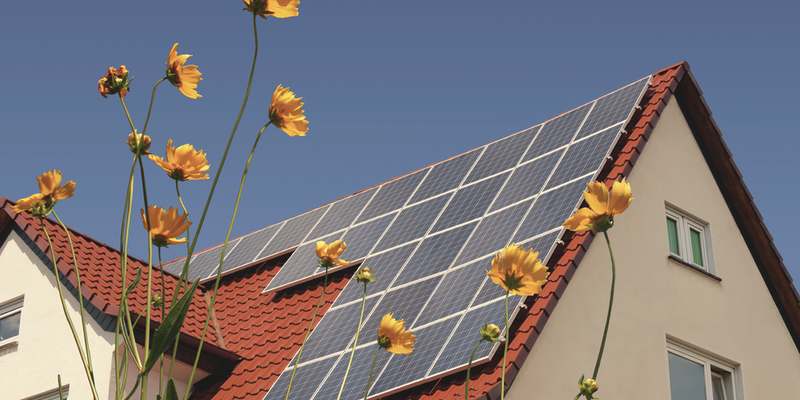
If you are not redirected within 30 seconds, please click here to continue.
Samedi: 10h – 16h HAE

If you are not redirected within 30 seconds, please click here to continue.
If you are not redirected within 30 seconds, please click here to continue.
Rebates for climate-friendly changes to your home

As climate change worsens, more people are doing their part to limit its effects. With the urgent need for eco-friendly solutions, governments are also stepping in with incentives to help.
If you’re looking to make your home more environmentally friendly, there are upgrades you can do, like installing a heat pump or solar panels. These upgrades can give you tax credits, grants, rebates, and can even help you save money by lowering your home insurance rates.
Here are some rebates you can get for making your home more climate-friendly:
Canada Greener Homes Initiative
The Canada Greener Homes Initiative offers financial help with grants up to $5,000 for making your home more energy efficient. This includes installing heat pumps, energy-efficient windows and doors, and better insulation.
The program isn’t taking new applications right now. But if you’re already in the program, you can continue with your home upgrades and receive assistance and funding. If you live in Ontario, Quebec, or Nova Scotia, check with your local programs for more information.
Upgrades Include:
Installing a heat pump: In Canadian homes, over 60% of energy goes to heating. Switching to heat pumps can significantly cut down your energy use and bills. They work like a refrigerator, moving heat from one place to another.
You can get up to $5,000 in grants for installing a heat pump, and it might also lower your home insurance costs since insurers see them as less risky compared to oil or wood heating.
Installing solar panels: You can also get up to $5,000 in grants for installing solar panels. They are a popular choice for those wanting to save money on energy usage while relying less on fossil fuels. However, they can complicate getting good home insurance because they’re relatively new and come with certain risks. EcoWatch says that in Ontario, a 5-kW solar panel system typically costs around $17,350, while a 10-kW system usually costs about $34,700.
Read next: What will my car and home insurance policies cover when it comes to storm damage?
Other eligible retrofits: Grants are also available for adding more insulation to your home, improving air sealing (like using door sweeps and weather stripping), replacing windows and doors with ENERGY STAR certified ones, and installing smart thermostats.
Climate resiliency measures: You can get extra rebates up to $2,625 for making your home more resilient to things like fire, flood, or strong winds. This includes adding batteries to solar systems, using waterproof roofing materials, or waterproofing your basement.
Read more: How is climate change affecting home insurance premiums?
CMHC Eco Plus program
Previously known as the CHMC Green Home Rebate, the CMHC Eco Plus program provides a partial premium refund of up to 25% for homes with energy efficiency certifications.
To qualify, your home must meet specific energy efficiency or greenhouse gas targets. Applications must be submitted within 24 months of your mortgage closing date, and this process includes a home energy assessment.
Flood prevention subsidies
Keeping your home safe from water damage is important. Flood prevention subsidies can help you take the right steps and save money at the same time. Here’s the two subsidies that can help:
Sump pump subsidy
Depending on where you live, you could get a subsidy for installing a sump pump in your basement. A sump pump works by collecting water from your interior drainage system (usually weeping tile) into a pit and pumping it outside your home.
It’s useful for preventing your basement from flooding. The City of Toronto offers homeowners up to 80% of the invoice amount (up to a maximum of $1,750) to help cover the installation.
Check with your local municipality as there are many other programs. And be sure to inspect and maintain your sump pump to ensure it’s working. A sump pump helps protect your home from damage due to flooding, but you can also consider having a backwater valve installed – another basement flood prevention tool.
Related: Is severe flooding making your home uninsurable?
Backwater valve subsidy
Many municipalities also offer subsidies for installing backwater valves. Backwater valves are designed to close the sewer line during periods of heavy rain to prevent water from entering your home.
But make sure you don’t use your shower or dishwasher at the same time while the valve is closed, or water can back up into your home. The City of Toronto offers a subsidy of up to 80% of the installation cost, up to a maximum of $1,250.
Enercare also makes it easy to search for plumbing rebates in your area. Because a backwater valve helps protect your home from damage due to sewer backup, you may be eligible for a home insurance discount. Speak with your insurance company to confirm.
Navigating insurance challenges
While making eco-friendly upgrades can potentially lower your home insurance premiums, challenges remain.
For example, CBC reported that some Ontario residents had their policy canceled because of their new solar panels. Some insurers don’t have much experience with pricing and covering solar panels claims and worry about risks like electrical changes and storm damage.
If you are able to find an insurer who offers coverage for solar panels, the insurance varies. Some companies include them in standard policies, while others offer separate endorsements specific to solar panels. Homeowners should talk to their insurers to understand their coverage and consider different providers for better options.
On the other hand, certain upgrades like backwater valves and sump pumps are seen as reducing risk, possibly leading to lower premiums.
In any case, make sure that you inform your insurer if you’re planning any eco-friendly renovations or upgrades to your home to understand the coverage implications. And don’t forget to compare home insurance rates at least once a year to make sure you’re getting the best rate, and always let your insurance provider know if you make any improvements to your home so you don’t miss out on potential savings.
Don't waste time calling around for home insurance
Use RATESDOTCA to shop around and compare multiple quotes at the same time.
Finding the best home insurance coverage has never been so easy!
Get money-saving tips in your inbox.
Stay on top of personal finance tips from our money experts!










